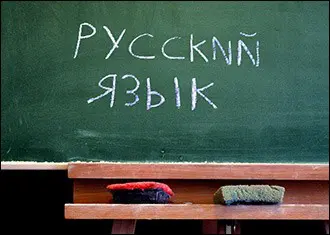Donation concerts in support of Ukraine were held in Latvia and elsewhere in the world on February 25 and 26. One year had passed since the Russian Federation, like Hitler’s Reich, on June 21, 1941, and Russia – on February 24, 2022 at 4 in the morning, launched a large-scale attack on Ukraine.
Content will continue after the ad.
Currently, more than 30 thousand Ukrainian refugees live in Latvia. A simple question arises: “In what language did we communicate with them?” My answer: “Mostly it is Russian, in a few cases – Latvian, and only a few can do it in Ukrainian.”
Would I and many people of my age have been able to get a university education in at least one specialty of natural sciences or engineering if we did not know the Russian language? It would have been mission impossible.
But the fact that in 1968 Russia (formally the Soviet Union) brutally suppressed Czechoslovakia’s efforts for freedom, we, Latvian physicists of the Latvian State University, perfectly understood. The party secretary of the Faculty of Physics and Mathematics even had to “educate” us, because in the student dormitories we were happy about the victory of the Czechoslovak team in the hockey match against the Soviet Union.
Content will continue after the ad.
Do those prohibiting the teaching of the Russian language also hate the outstanding scientists who were imprisoned by Stalin – agrarian economist Aleksandr Chayanov, from whom Latvian economists and biologist Nikolaj Vavilov have also learned the basics of cooperation? Do these Latvian super-nationalists hate Nobel laureate Andrei Sakharov? It would still be necessary to ban the use of Mendeleev’s periodic table of chemical elements, and then there would be a real triumph of the “stalls”.
I agree that the Russian language brings imperialism and chauvinism into the humanitarian field. But what does this have to do with physics, chemistry and agronomy? Of course, nothing.
I have heard the following opinion from many people, which I can agree with 100%: «You have to know the language of your worst enemy». I will add that this enemy will border Latvia forever.
Content will continue after the ad.
Why “yes” for the Russian language?
Our knowledge of the Russian language will be useful mainly for economic cooperation with Central Asia – Kazakhstan, Uzbekistan, Tajikistan, Turkmenistan, Kyrgyzstan, as well as the countries of the Transcaucasia – Armenia, Georgia and Azerbaijan. In these countries, in my opinion, the English language will be able to compete with Russian well if in 30 years.
Of course, the Russian language will still be useful in Ukraine and Moldova. Let’s not forget that Russia also tried to destroy the Russian-speaking Kharkiv in the first days of the war.
I think that after the denazification of Russia and Belarus, mutually beneficial contacts with these countries will be restored.
Content will continue after the ad.
When thinking about Latvia’s interests regarding the Russian language, I even get the impression that the Latvian government consciously or unconsciously “coddles” to the Kremlin, trying to ban the teaching of the Russian language in Latvia, thereby making Latvia less competitive.
In my opinion, every student in Latvia should have a good command of Latvian, Russian, English and a fourth language of their choice – French, German, Spanish, Italian, Portuguese or even Chinese – upon finishing high school.
My youngest daughter, who currently lives in England, is taking courses to improve her knowledge of English grammar. The teacher is, of course, a real Brit, but he loves languages and has also learned Russian. The courses have many participants from the former Soviet Union, and he speaks Russian with Ukrainians, for example, during class breaks.
Content will continue after the ad.
God bless Latvia! God bless Ukraine!
Text: Aivars Punka Mežotne
Photo: Illustrative photo/la.lv

:strip_icc():format(jpeg)/kly-media-production/medias/1291217/original/009376700_1468830939-f4ca3edb469f7cb9a3bb45331577860b_XL.jpg)
